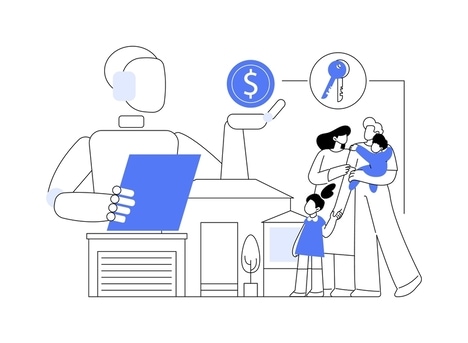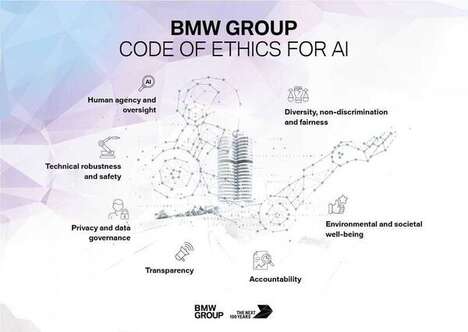AI for Mortgage Management

Introduction
The mortgage industry is famously complex. Long approval cycles, endless paperwork, and strict regulations create an inefficient system that frustrates borrowers and challenges lenders. In recent years, however, artificial intelligence (AI) has emerged as a game-changer, simplifying the mortgage process and reducing costs. What once took weeks of manual effort is now being streamlined in minutes by AI-driven solutions.
For business-minded folks, understanding AI’s role in mortgage management is no longer optional—it’s a competitive advantage. This article explores how AI is revolutionizing the mortgage industry, the key trends driving adoption, the benefits and challenges, and real-world applications that prove AI’s potential to simplify even the most complex loans.
The Growing Role of AI in Mortgage Management
AI is transforming every stage of the mortgage process. From loan origination to underwriting, risk assessment, and compliance checks, AI is making the industry more efficient. Traditionally, loan processing relied on extensive human input, leading to long approval times and high operational costs. Now, AI-powered solutions are streamlining these processes, cutting down decision times from weeks to mere hours—or even minutes.
For example, AI-driven underwriting models analyze a borrower’s financial data, credit history, and risk profile faster than traditional methods. Document processing automation, using Optical Character Recognition (OCR) and machine learning, can extract and validate information from loan documents in seconds. AI is also improving fraud detection by identifying anomalies and inconsistencies that human analysts might miss.
Additionally, AI-powered chatbots and virtual assistants are enhancing customer interactions, providing instant responses to inquiries and guiding applicants through the loan process. In an industry that has historically suffered from poor customer experience due to long wait times, AI is bridging the gap by making mortgage applications more transparent and responsive.
Key Benefits of AI in Mortgage Processing
The growing adoption of AI in mortgage management is driven by its clear benefits:
- Speed and Efficiency – AI significantly reduces loan processing times. Instead of manually reviewing stacks of paperwork, AI can process data and make recommendations in real time. Some lenders using AI have cut mortgage approval times by 30-50%.
- Improved Accuracy and Fraud Detection – Manual data entry is prone to errors, but AI minimizes these mistakes by automating calculations and cross-referencing data across multiple sources. Machine learning models also detect fraudulent activity by analyzing patterns in borrower behavior.
- Cost Reduction – By automating repetitive tasks, AI reduces labor costs and operational expenses. The cost to originate a mortgage has been rising in recent years, reaching over $10,000 per loan. AI-powered solutions can significantly lower these costs, improving profit margins for lenders.
- Better Compliance and Risk Management – Mortgage lending is highly regulated, and non-compliance can result in hefty penalties. AI helps lenders stay compliant by automatically cross-checking loan applications against regulatory requirements and flagging potential issues before they become problems.
- Enhanced Customer Experience – AI-powered chatbots and virtual assistants provide borrowers with real-time updates on their applications, reducing uncertainty and improving customer satisfaction. Personalized loan recommendations based on financial data also help borrowers find the best mortgage options tailored to their needs.
Challenges and Considerations
While AI presents numerous benefits, its implementation in mortgage management is not without challenges.
- Regulatory and Compliance Risks – AI must operate within strict lending regulations, including fair lending laws that prevent discrimination. Ensuring AI-driven decisions are transparent and unbiased remains a critical challenge for lenders.
- Data Privacy and Security – Mortgage applications involve sensitive personal and financial information. AI systems must adhere to stringent data protection standards to prevent breaches and maintain consumer trust.
- Integration with Legacy Systems – Many financial institutions rely on outdated loan origination systems that are not easily compatible with AI-driven technologies. Upgrading infrastructure requires investment and strategic planning.
- Need for Human Oversight – Despite AI’s efficiency, human judgment is still necessary for complex loan applications. AI should be used as a tool to assist decision-making rather than replace human expertise.
- Bias and Ethical Concerns – AI models are only as good as the data they are trained on. If historical data contains biases, AI-driven mortgage decisions could inadvertently reinforce discriminatory lending patterns. Continuous monitoring and algorithm audits are essential to ensure fair and ethical AI use.
Real-World Applications and Case Studies
Many financial institutions are already leveraging AI to transform their mortgage processes. Here are a few notable examples:
- HomeTrust Bank implemented an AI-powered document automation platform to streamline income verification and document review. This resulted in an estimated and reduced processing times by over 40%.
- Blend Labs, a fintech company, developed an AI-driven "Copilot" for mortgage officers. This tool automatically reviews borrower profiles, generates loan options, and drafts pre-approval letters in minutes, improving efficiency and reducing human workload.
- Candor Technology built an AI underwriting engine that can approve FHA loans in as little as 90 seconds. By automating underwriting decisions, lenders using Candor’s AI can process more loans in less time without sacrificing accuracy.
- InstaMortgage introduced a generative AI chatbot to assist customers with mortgage inquiries 24/7. AI-driven customer service solutions like these help borrowers get immediate answers and improve overall satisfaction.
Future Trends in AI for Mortgage Management
AI’s influence on mortgage management is expected to grow, with several emerging trends shaping the future:
- Predictive Analytics for Risk Assessment – AI models will increasingly be used to predict borrower behavior, helping lenders anticipate default risks and proactively manage their loan portfolios.
- AI-Powered Personalized Experiences – Future AI tools will provide hyper-personalized mortgage recommendations based on individual financial data, ensuring borrowers receive the best loan options tailored to their needs.
- Blockchain and Smart Contracts Integration – AI and blockchain could work together to create a more transparent, secure, and efficient mortgage process. Blockchain-based loan records combined with AI-driven automation may enable fully digital mortgage approvals.
- Explainable AI for Compliance – Regulators will demand more transparency in AI-driven mortgage decisions. Explainable AI models will help lenders justify decisions and meet compliance requirements while maintaining customer trust.
- AI-Driven Customer Support – Chatbots and virtual assistants will continue to evolve, offering even more intuitive and seamless customer interactions, reducing the need for human intervention in routine inquiries.
Conclusion
AI is revolutionizing mortgage management by simplifying complex loan processes, reducing costs, and improving the borrower experience. While challenges remain, the benefits of AI-driven efficiency, accuracy, and customer service are too significant to ignore. Companies that leverage AI effectively will gain a competitive edge, while those slow to adopt may struggle to keep up with an increasingly digital and data-driven industry. As AI continues to evolve, its role in mortgage management will only become more integral—transforming the industry for lenders and borrowers alike.
To stay ahead of the latest AI, mortgage, and business trends, download today and gain insight into the innovations shaping the future of finance.


